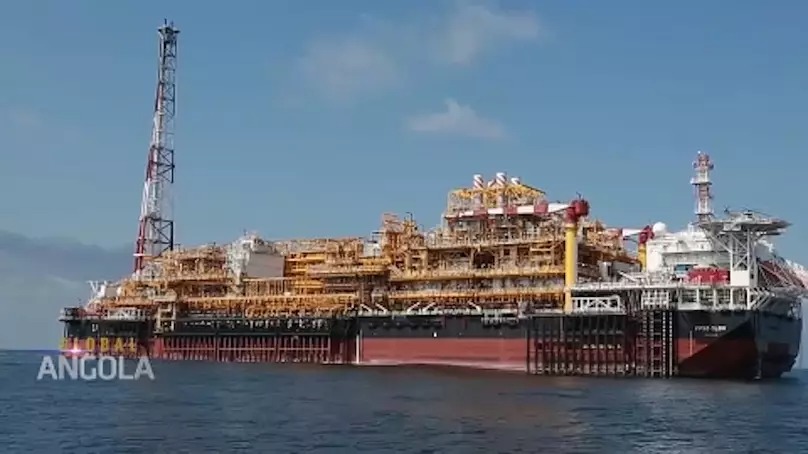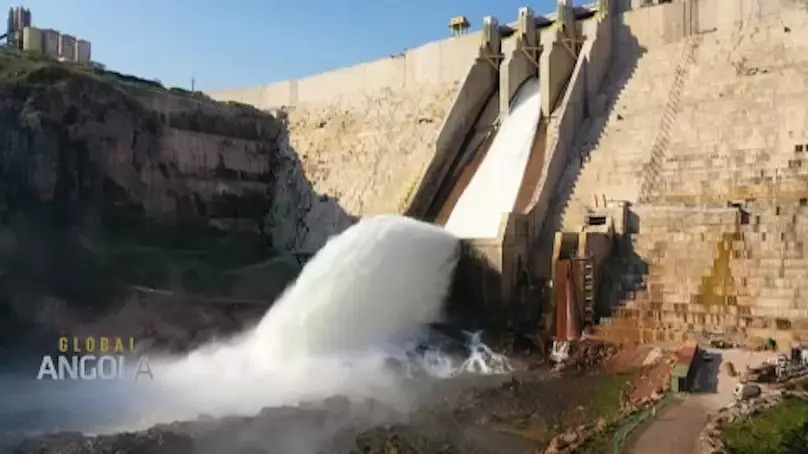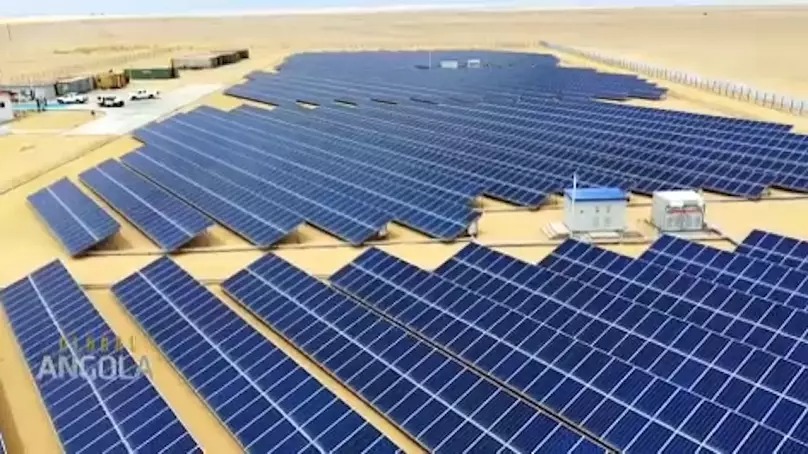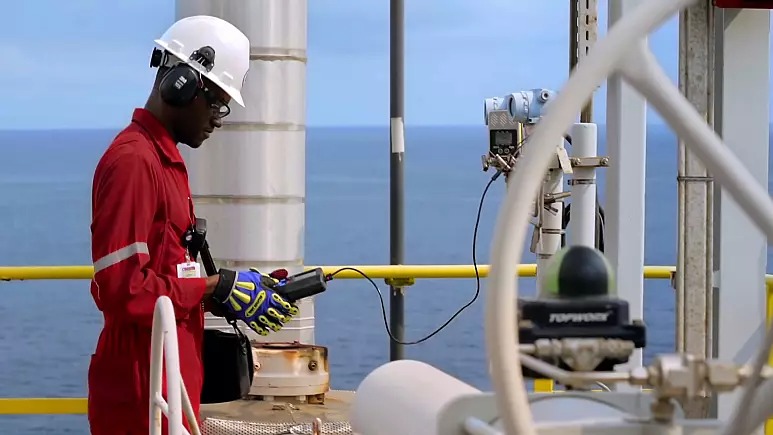Angola is the second largest oil and gas producer in southern Africa. By developing renewable energies such as solar, wind and hydro power, the country wants to become an energy superpower. Large international corporations like TotalEnergies and ExxonMobil have been present in Angola for decades. They benefit from the country’s stable government, which pursues lean regulatory and fiscal policies. Together with the national producer Somoil, they develop renewable energies and reduce theCO₂ footprint of their oil production.
As an OPEC member and the second largest oil producer in sub-Saharan Africa, Angola is one of the most stable and secure destinations for energy investments in Africa. The French company TotalEnergies operates several oil platforms off the Angolan coast. Drilling is done into a seabed up to 2 kilometres deep.

According to the International Energy Agency, Angola is on track to become the largest oil producer in southern Africa, there are also subsidies and investments in renewable energy.
TotalEnergies is the largest oil and gas producer in Angola, and the government is encouraging further investment to increase production.
“We are focusing on the existing production base as well as developing marginal fields and opening up development areas,” says Paulino Jerónimo, he is chairman of the board of the national agency for oil, gas and biofuels, the ANPG. _”_If we succeed, we expect production to increase to over 1,100,000 barrels of oil a day. “

Flexible regulatory and fiscal policy
A flexible policy approach to taxation and regulation has paid off in recent years.
“We have invested a lot and now have a leading position in Angola with 45 per cent of the country’s production,” says Olivier Jouny, Managing Director of TotalEnergies Angola. The company has been operating in Angola for almost 7 decades. “_This is one of our biggest subsidiaries, we have six facilities, six oil platforms, six big vessels producing in water depths between 1,500 and 2,000 metres.”
ExxonMobil is another major player in Angola, and has been for more than a quarter of a century. Melissa Bond, Managing Director ExxonMobil Angola: _”_We have the largest deepwater operation within the entire company. Stability is very important to us, fiscal, legal and regulatory stability. And Angola has proven that in the time we’ve been here. “
Training programmes pay off
Exxon training programmes are also paying off, including in offshore work known as FPSOs (floating production, storage and offloading). _”_We have sent our Angolan employees abroad for technical training,” Bond said. “We are very proud because, as a result of this investment, 92 per cent of our workforce is currently Angolan.”
This training has had an impact on other companies in various sectors. Somoil managing director Edson dos Santos: “_Today they run banks, private companies, they participate in the development of the whole country. “
Further development of the energy sector
As everywhere in the world, Angola’s energy sector continues to evolve to incorporate renewable energy and reduce its CO₂ footprint. Angola’s largest oil company Somoil, now 20 years old, is repositioning itself.
“There is clearly a shift towards renewable energy,” Edson dos Santos says. “One of them is solar energy, the solar radiation in Angola is one of the best in Africa. And the second is hydropower. There are many rivers in Angola.”

TotalEnergies is also working on renewable energy development in Angola: “In Angola, we see a very big potential for solar energy in particular,” says Olivier Jouny. “We currently have a solar project in the city of Lubango, in Huila province, in the south of Angola. We will soon decide on a 35-megawatt solar power plant. “

The group wants to reduce harmful combustion methods and switch to renewable energy. _”_We are committed to reducing gas flaring at our Angolan plants,” Olivier Jouny continues.
This policy is also being pushed by the Angolan government, Paulino Jerónimo: _”_Our goal is to achieve zero flaring very soon.”
Necessary factors to create a future-proof energy economy in Angola: _”_The solar radiation is immense,” says dos Santos. “Hydroelectricity is another opportunity. Our geographical location is also helpful. Angola has all the prerequisites to become a real energy superpower in Africa. “
